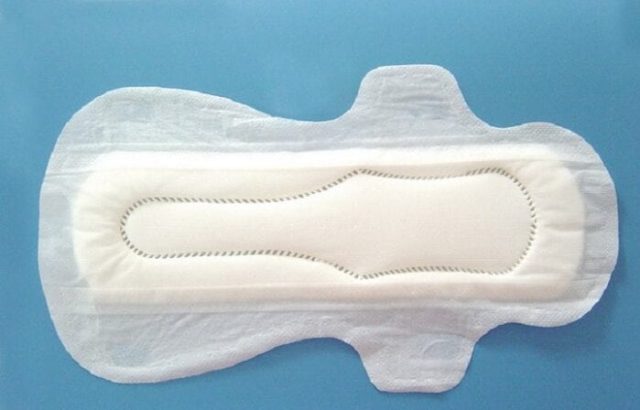In recent years, the issue of menstrual health has garnered increased attention, particularly in the context of education and gender equality.
In Ghana, the National Democratic Congress (NDC) initiates a policy programme to provide free sanitary pads to girls in basic and secondary schools, an intervention that aims to address the challenges faced by millions of schoolgirls during their monthly menstrual cycles.
With over three million girls projected to benefit each month, this initiative not only enhances the educational experience for young women but also serves as a significant step towards promoting gender equity and empowerment in the country.
Understanding the Context
Menstruation is a natural biological process that affects half of the world’s population at some point in their lives. However, in many developing countries, including Ghana, menstrual health management remains a significant barrier to education for young girls.
The stigma surrounding menstruation, coupled with inadequate access to sanitary products, often leads to absenteeism, dropping out of school, and diminished academic performance.
In Ghana, it is estimated that a substantial number of schoolgirls miss school during their menstrual periods, directly impacting their educational outcomes. The economic burden of purchasing sanitary pads, which can be prohibitively expensive for many families, further exacerbates this issue.
As a result, a pressing need has arisen for a comprehensive solution that would ensure that no girl is forced to compromise her education due to her menstrual cycle.
The NDC’s Initiative
In response to this pressing challenge, the NDC has initiated its free sanitary pads programme, targeting girls in basic and secondary schools across the country. This initiative is one of the largest of its kind, aiming to provide consistent access to menstrual hygiene products for millions of schoolgirls.
The programme’s primary objective is to eliminate the financial barriers associated with menstrual hygiene management, thereby fostering a more conducive learning environment for schoolgirls.
The initiative is built on several key pillars. Firstly, it aims to raise awareness about menstrual health and hygiene, helping to dismantle the stigma that often surrounds menstruation. By normalising discussions about menstrual health, the NDC seeks to empower young women, encouraging them to embrace their bodies and understand the importance of menstrual hygiene.
Secondly, the provision of free sanitary pads is intended to ensure that girls can attend school without the fear of embarrassment or discomfort during their menstrual periods. This access not only supports their educational journey but also promotes their overall well-being. Research has shown that when girls have access to proper menstrual hygiene products, their attendance and academic performance improve significantly.
Monthly Beneficiaries: A Statistical Overview
The scale of the NDC’s initiative is impressive, with over three million schoolgirls benefiting each month. This staggering number underscores the magnitude of the intervention and its potential impact in the educational space in Ghana. By providing free sanitary pads, the NDC is not only addressing the immediate needs of these girls but is also contributing to long-term societal change.
The programme is designed to reach girls in both urban and rural areas, recognising that access to menstrual hygiene products is a challenge across various socio-economic backgrounds. By ensuring that even the most disadvantaged girls receive these products, the initiative promotes inclusivity and equity within the educational system.
Challenges and Considerations
Despite the ambitious goals of the initiative, there are challenges that must be addressed to ensure its long-term success. One of the primary concerns is the sustainability of the programme. The provision of free sanitary pads requires significant funding and logistical support. Ensuring a consistent supply of products to schools, especially in remote areas, is crucial. The NDC must work closely with local governments and communities to establish reliable distribution networks.
Additionally, while providing sanitary pads is a vital step, it is essential to complement this with educational campaigns that inform girls about menstrual health. Empowering them with knowledge about their bodies, hygiene practices, and the use of sanitary products can lead to better health outcomes and increased confidence.
Furthermore, engaging boys and men in discussions about menstruation is equally important. By fostering an environment of understanding and support, the stigma surrounding menstruation can be reduced, benefiting everyone in the community.
Societal Impact: Beyond Education
The implications of the NDC’s free sanitary pads initiative extend far beyond the classroom. By ensuring that girls can attend school regularly, the programme contributes to broader social change. Educated women are more likely to participate in the workforce, contribute to their communities, and advocate for their rights.
Moreover, addressing menstrual health is a critical component of gender equality. When girls are empowered to manage their menstrual health, they are more likely to pursue their education and achieve their goals. This shift has the potential to transform societal norms and expectations surrounding women’s roles in Ghana.
The initiative also aligns with global goals for sustainable development, particularly Goal 4 (Quality Education) and Goal 5 (Gender Equality). By investing in the education of girls and ensuring their well-being, the NDC is playing a crucial role in advancing these objectives on both a national and international scale.
Future Prospects
Looking ahead, the success of the free sanitary pads programme will depend on continued commitment and collaboration among stakeholders. The NDC must engage with various partners, including NGOs, health organisations, and community leaders, to ensure that the initiative is not only maintained but also expanded.
Additionally, integrating menstrual health education into the school curriculum can enhance the effectiveness of the programme. By equipping students with knowledge and skills related to menstrual health, the NDC can foster a culture of understanding and respect.
Conclusion
The NDC’s initiative to provide free sanitary pads to schoolgirls represents a monumental step forward in addressing the barriers to education faced by young women in Ghana. With over three million beneficiaries each month, this programme is not only a practical solution to a pressing issue but also a powerful catalyst for social change.
By prioritising menstrual health and hygiene, the NDC is helping to create an environment where girls can thrive academically and socially, paving the way for a more equitable and prosperous future for all.
As the initiative progresses, it is essential to continue evaluating its impact, addressing challenges, and ensuring sustainability. Through collaborative efforts and a commitment to gender equality, the NDC can ensure that the benefits of this programme resonate for generations to come, ultimately transforming the landscape of education and empowerment for women in Ghana.
Thank you for reading today’s episode. Continue to follow the insightful articles I share on this page.
See you.
Writer: Daniel Fenyi
The writer is a licensed counselor, educationist, professional writer and conference speaker who guides young people through his writings. You can reach him via email [email protected]
















